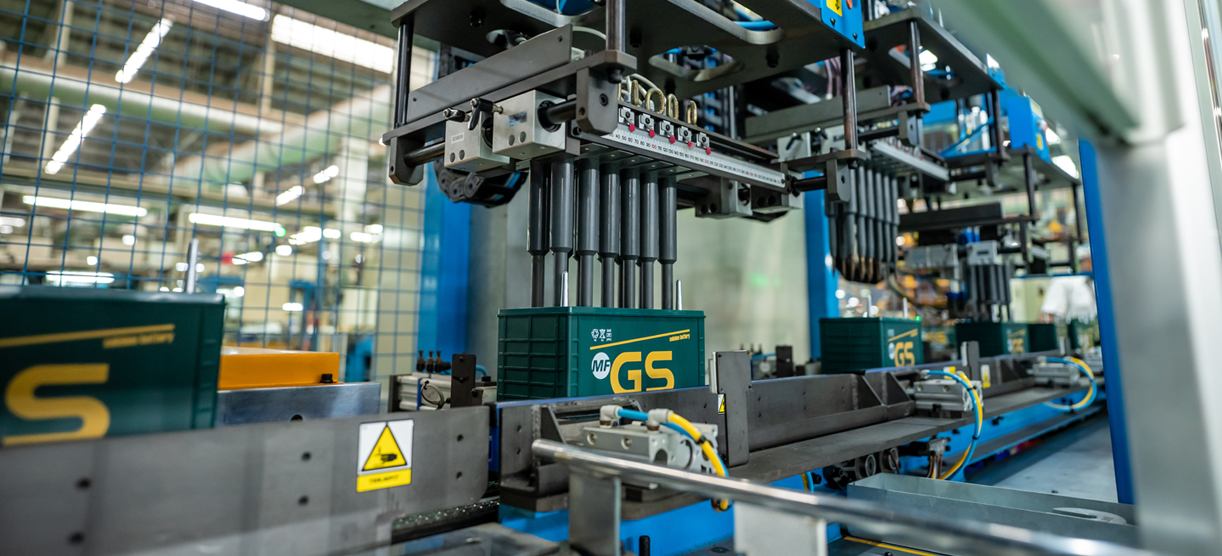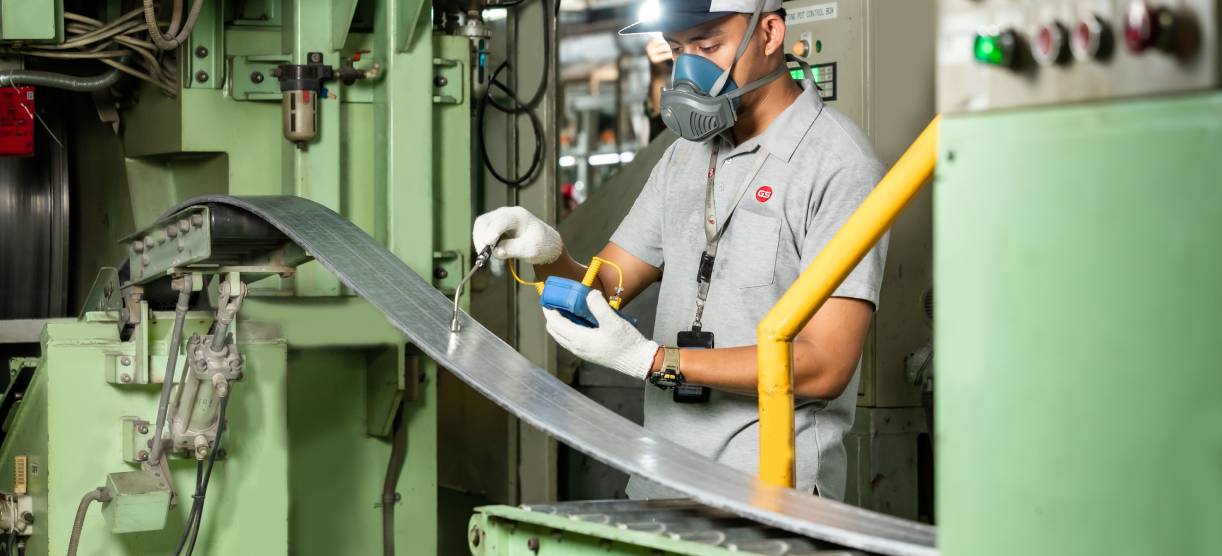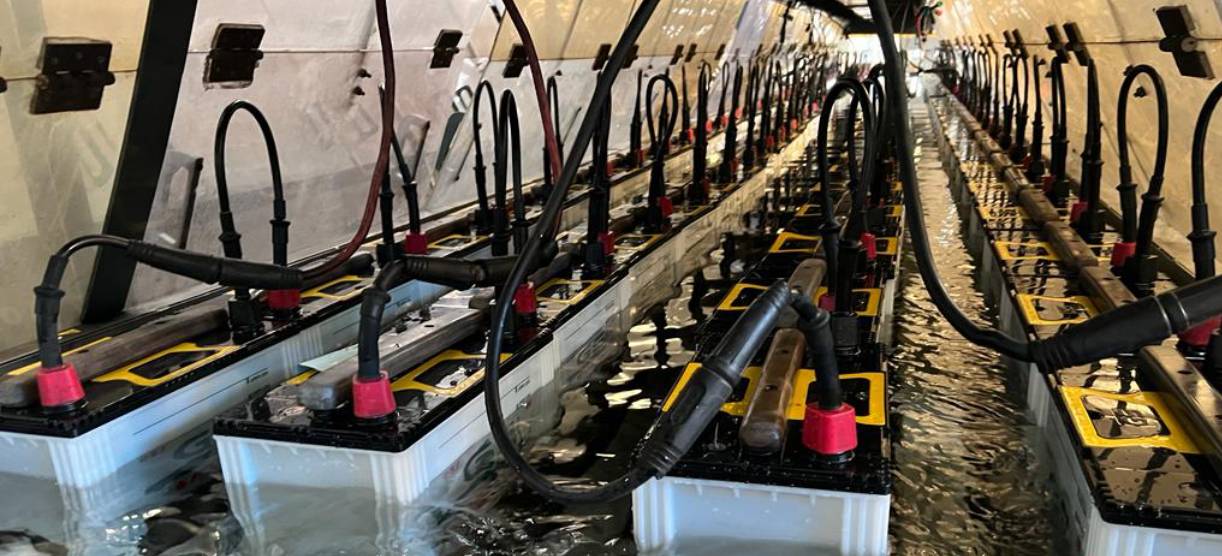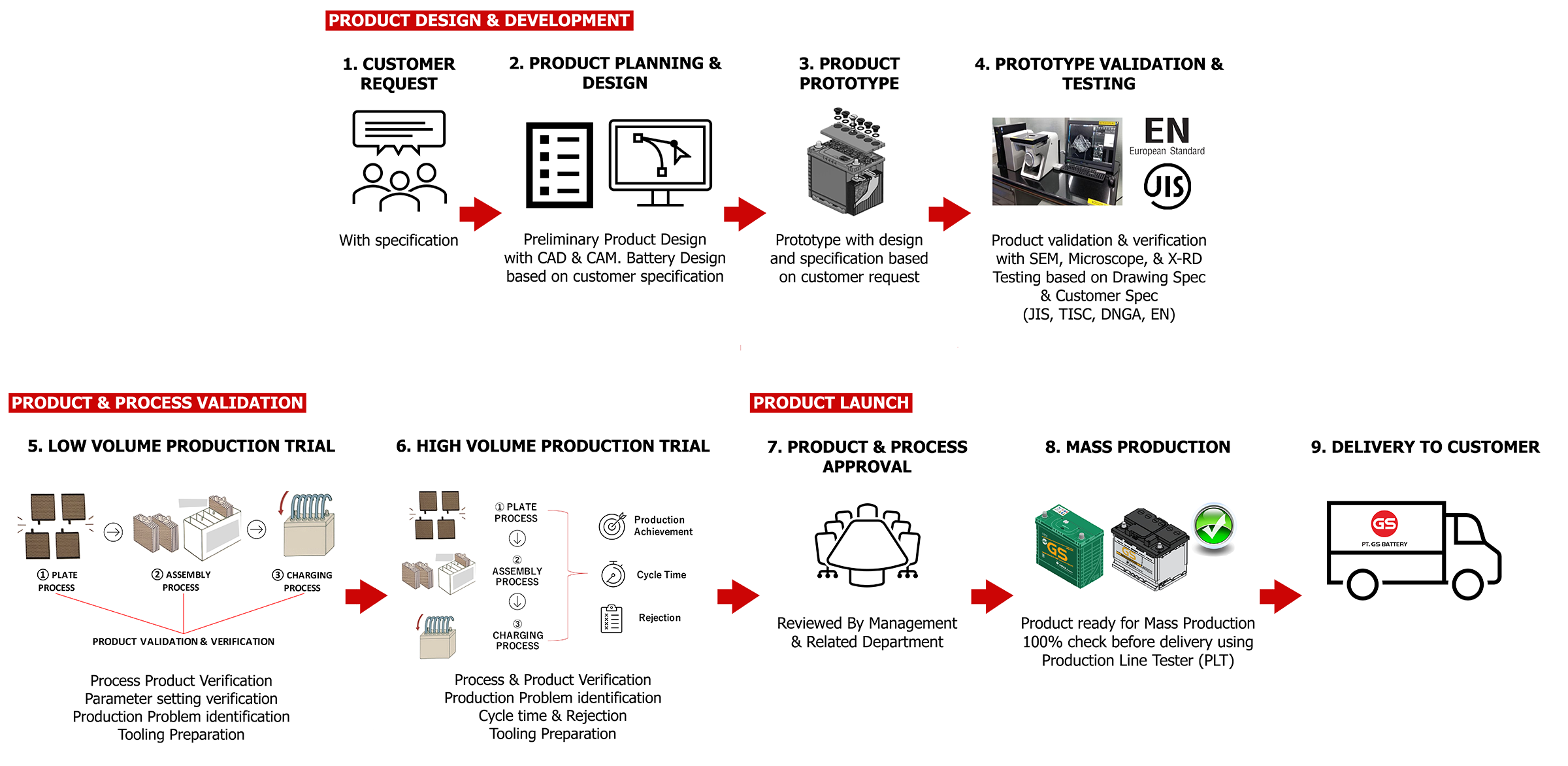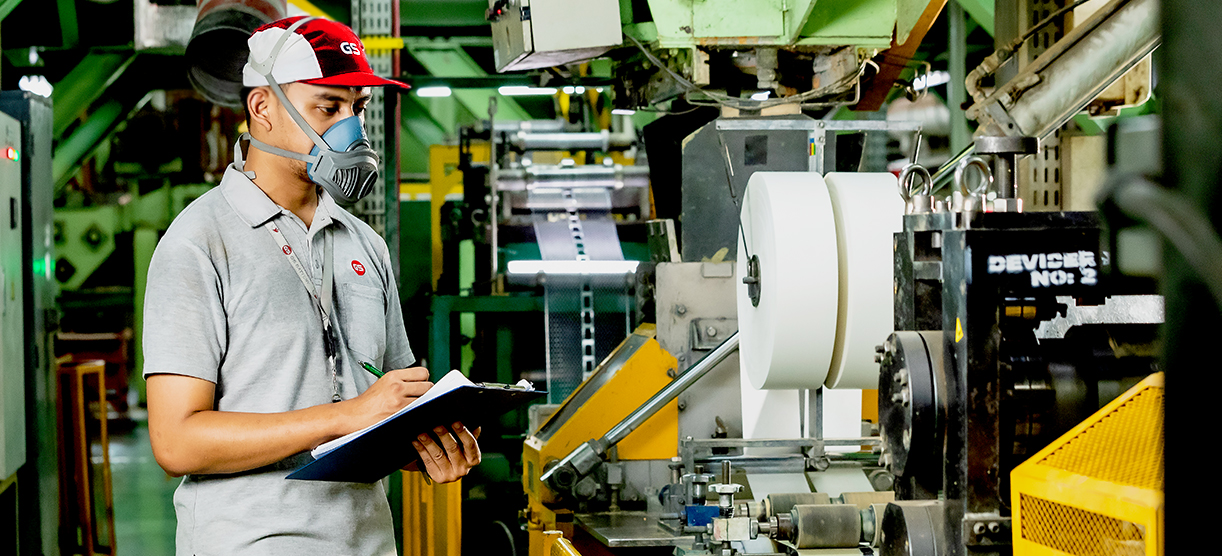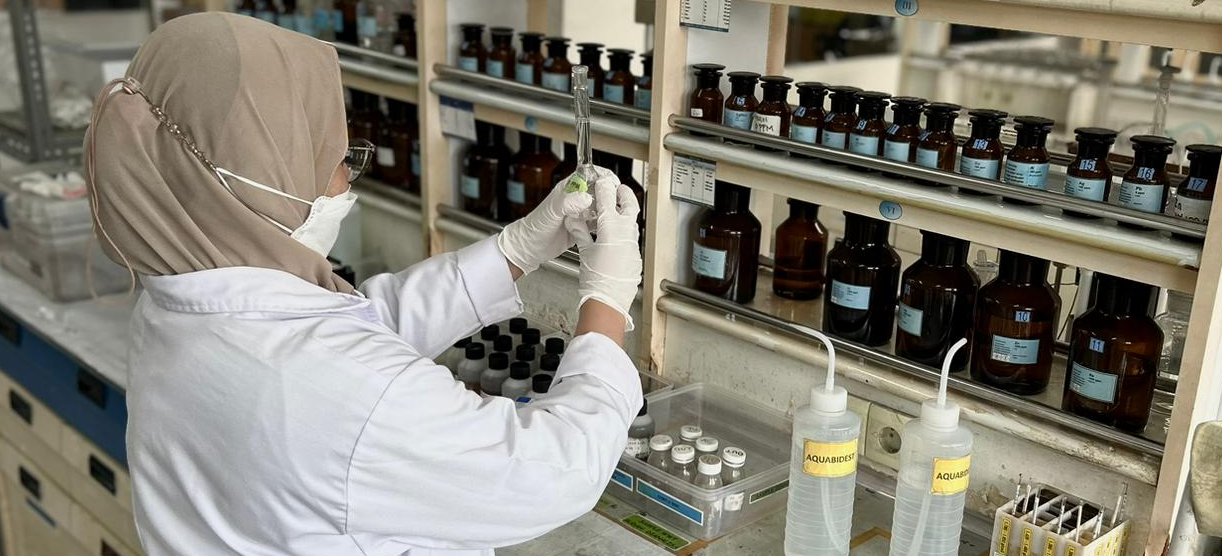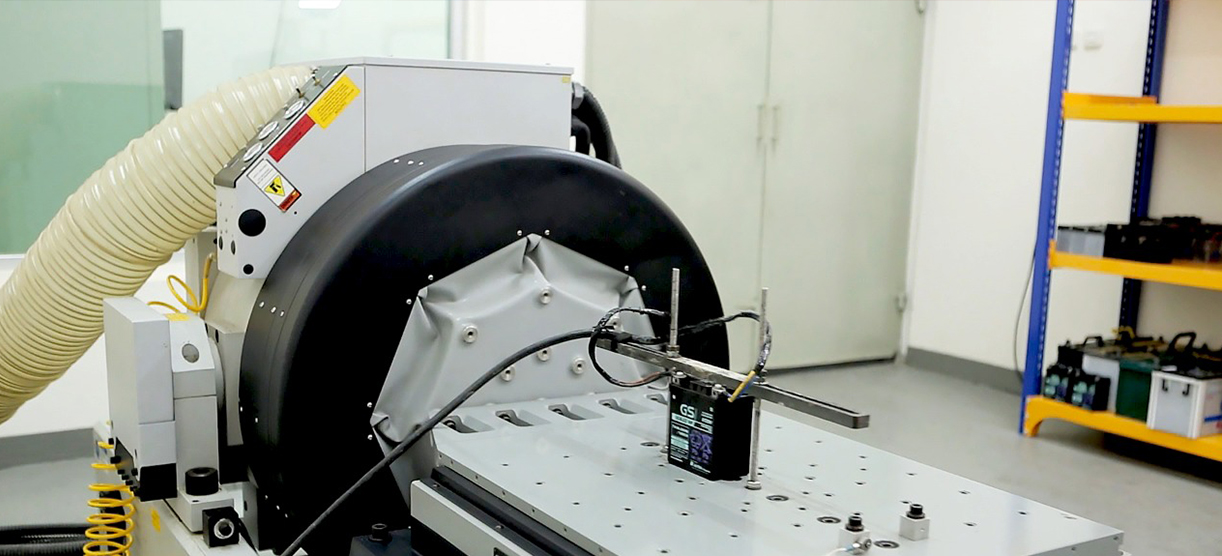-
Grid Making
The process of making a grid or framework by attaching active material, for both car batteries and motorcycle batteries -
Pasting
The process of attaching the active material to the grid/lead sheet to produce a strong unformed plate with good electrical conductivity. -
Battery Assembly
The process of combining all battery components into battery. The assembling process uses automatic machines and is equipped with pokayoke (anti-error detection) to guarantee battery quality. -
Battery Charging
The process of filling electrolyte and charging the battery which functions to provide an electrical charge to the battery.
.
We guarantee the quality of the product produced by the company can meet standards and suit customer needs. We control our product and production process from receiving the raw material [Incoming process] and then moves to the inspection process which happens during the production process [in-process inspection], and lastly to the final production process before the product is sent to the customer [pre-delivery inspection].
- Raw Material Receiving Process (Incoming Process)
The process of checking the raw materials and/or components sent from the supplier in accordance with the standards set by GS Battery before being forwarded to the next process. - Inspection Process during the Production Process (In process Inspection)
The Inspection Process during the Production Process aims to ensure that the products produced from each process carried out have been checked and meet the established standards before being declared good to be continued to the next production process. - Final Inspection Process (Final Product Audit)
The Final Inspection Process is an inspection activity carried out on the battery before it is sent to the customer. The check items carried out include battery function and the completeness of the battery (voltage, packaging, label, production code, etc.).
To ensure that every product produced is of the best quality, GS Battery has a laboratory (chemical laboratory, testing, calibration) that has passed certification as well as quality control and an integrated monitoring system.
- Chemistry Laboratory
This laboratory is responsible for ensuring product quality from raw materials to components in the battery. Apart from that, the chemical laboratory also analyzes wastewater resulting from the process of Waste Water Treatment (WWT) for it to be in accordance with applicable regulatory quality standards.
- Battery Testing Laboratory
Testing for finished good battery is the responsibility of the Testing Laboratory. The Testing Laboratory uses standard methods, sophisticated equipment, regular machine & tooling calibration, and competent personnel to produce accurate test results. Since 2005, the GS Battery testing laboratory has been the first battery testing laboratory to receive SNI ISO/IEC 17025 certification (for non-governmental organizations). - Calibration Laboratory
Measuring tools and machines used in the production process and in-process support units must always be in proper condition before use. The calibration laboratory is responsible for ensuring the suitability of the measuring instrument or machine through a regular calibration process. The GS Battery calibration laboratory has also been certified by SNI ISO/IEC 17025 since 2009. With this certification, the calibration laboratory can ensure that internal measuring tools or machines used in production lines or process support units have been calibrated according to international standards.
